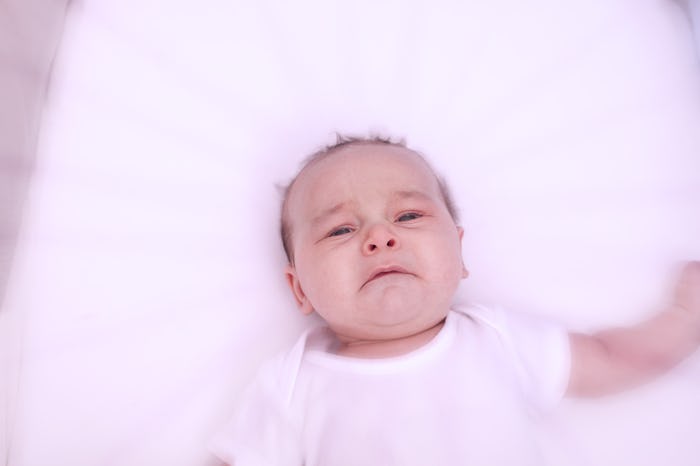Life

How Cry It Out Affects Kids Later In Life
In the parenting world, there's nothing more controversial than these three words — cry it out. The term refers to a sleep training method, called graduated extinction, that is meant to train your baby (when they're old enough) to sleep full through the night. It's a great goal to have — lord knows parents and children alike could all use a full night of sleep — but the debate happens around the implementation of the method and how cry it out affects kids later in life. Because even the most effective method isn't worth it if it is damaging to your baby, even years down the road.
Before things get too far though, let's clearly define our terms, so everyone is on the same page. The term cry it out can refer to lots of different sleep training methods, all of which involve a degree of crying to get your child to sleep. However, graduated extinction is the most extreme version, spearheaded by Marc Weissbluth, the author of Healthy Sleep Habits, Healthy Child. According to the Baby Sleep Site, in Weissbluth's method, parents lay their child down after a bedtime routine, when they're first showing signs of tiredness, and leave the room, offering no comfort or soothing, until the child falls asleep.
Although the evidence certainly isn't conclusive, and it does suggest that graduating extinction is an effective way to get your baby to sleep longer and wake less often, is it worth it if there are any potential risks?
According to one study published in the Archives of Disease in Childhood found that among babies who had experienced prolonged crying at a very young age (either from colic or other causes) had an average IQ at five years old that was nine points lower than the control group.
Similarly, another study found that excessive crying in infants can lead to more dependence later on, where as co-sleeping has been shown to foster "social and biological independence."
Ultimately the decision is up to the parent and what they feel will work best for their child, but educating yourself about any and all risks is the first step to making an informed decision.